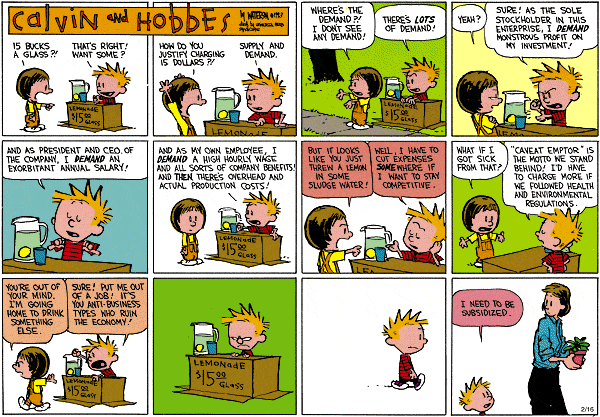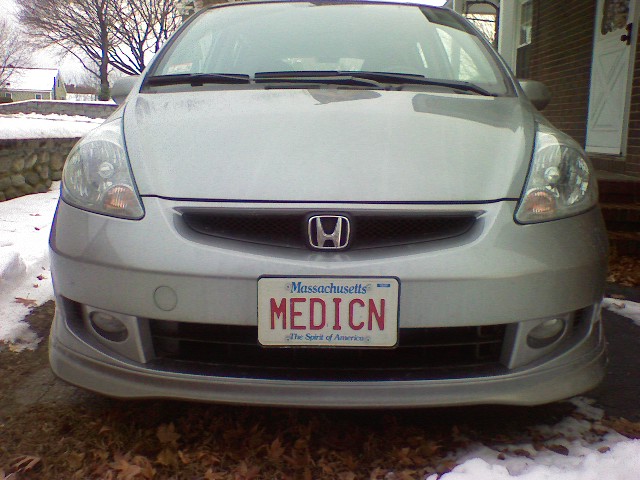I regularly embed YouTube videos into some of my posts. Mostly they’re interviews and the like. This morning I was scrolling through some of my older entries, and I wanted to re-watch Tom Brokaw quizzing President Obama on Pigouvian gas taxes. So I clicked play, and lo and behold, the video has been removed due to a copyright infringement claim from paramount_vfp.
Um… what?
As a large media organization, how stupid could you possibly be?
Look, people of my generation rarely watch shows like Meet the Press. Most people of my generation have never even heard of Meet the Press, let alone know what it is. They do, however, know what YouTube is. They know what search is. They know that you find video content by searching YouTube for whatever it is you’re looking for. Ergo, YouTube is the perfect platform for spreading your brand if you are a media company.
This isn’t rocket science, folks.
I understand that NBC wants to keep their content all under one roof, but frankly, they do a crappy job of it.
- The search interface sucks
- You have to watch an ad before you can view the shortest of clips
- Consumer’s don’t go to NBC.com to find A/V material because they don’t know or care that MTP is an NBC show
- NBC has a crap API for embedding videos. (Want a video to start at a specific point? Think again.)
- Google is the largest search engine, but it doesn’t find MTP clips very effectively.
- YouTube is the second largest search engine (larger than Yahoo!, even), and MTP clips are nowhere to be found.
Old media hasn’t figured out that consumers aren’t going to keep searching for that clip unless they really need it, and most video watching on the web isn’t done out of necessity — it’s done out of a casual desire to see something, and if the barrier to watching this content is too high, the consumer will simply give up. Everyone loses. (Note that this doesn’t necessarily apply to television shows.)
The NYTimes figured this out the quickest of all large media companies. They discovered that people aren’t interested in paying to access content that they only read casually. (Newspapers aren’t essential daily reads anymore — they’re third class media citizens that just happen to to most of the journalistic heavy lifting.) So they decided to open up the archives of the paper itself and make as much of their content freely available as they possibly can, in as many ways as they can. 28 years of content starting yesterday. If that’s not capitalizing on the long tail (ugh), I don’t know what is.
By constructing useful metadata, the NYTimes will allow individuals to find what they’re looking for either by using search engines like Google, or by using the NYTimes’ own search engine. By getting the metadata right, they’re going to maximize the impact they have on the Internet, which in another ten years will be more important than a stack of cheap paper sitting on the breakfast table.
What NBC should be doing is partnering with Google and uploading entire programs to YouTube in HD, particular news programs like Meet the Press that lend themselves to cropping into shorter news segments where specific sections can be embedded by bloggers, further maximizing a program’s impact. So an entire Meet the Press episode might consist of an NBC-constructed playlist residing in a Meet the Press YouTube channel that you can “Play All” on, with each discreet topic having its own video that can be linked to or embedded. Think President Obama’s Change.gov channel, applied to a Meet the Press concept.
NBC would then provide a brief synopsis of the episode so people can actually find the video they’re looking for. Better yet would be a full transcript like they currently provide for shows just like MTP and 60 Minutes. However if that’s asking too much, they could still drive traffic to their own website by providing a link to the fulltext transcript on the YouTube page itself.
Everyone wins in a model like this:
- Bloggers get, great, embeddable, first-hand material
- NBC maximizes consumer exposure to one of their premier brands in a way that a home-grown system never could
- NBC gets revenue from Google for sharing their content
- NBC doesn’t have to pay the costs associated with developing their own video-serving platform and hosting their own videos
When are the large media organizations going to figure this stuff out? When are they going to learn that they can still win in this new medium simply by sharing their own content in higher quality than others can copy and upload? When are they going to figure out that you can sell a lot more by doing this? (Just ask the guys from Monty Python.)
When are they going to figure out that lawyers and DMCA takedown notices are expensive and counterproductive and piss off potential customers? Everybody loses in a protectionist business model.
(In an amusing bit of irony, the Meet the Press website actually links to the very video that I originally embedded. This is not unlike yesterday’s blunder by Universal.)






